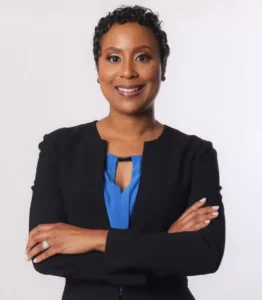Table of Contents

February marks Black History Month, a time to honor the legacy and contributions of African Americans in the United States. This occasion holds particular significance in Mississippi, where the fight for civil rights has long been fiercely contested.
Brown, Bass & Jeter, a Mississippi civil rights law firm deeply rooted in this state’s history and culture, is committed to upholding social justice and equality. In this post, we delve into the legal landscape of civil rights in Mississippi, reflecting on the pivotal battles and ongoing challenges.
What Are Civil Rights?
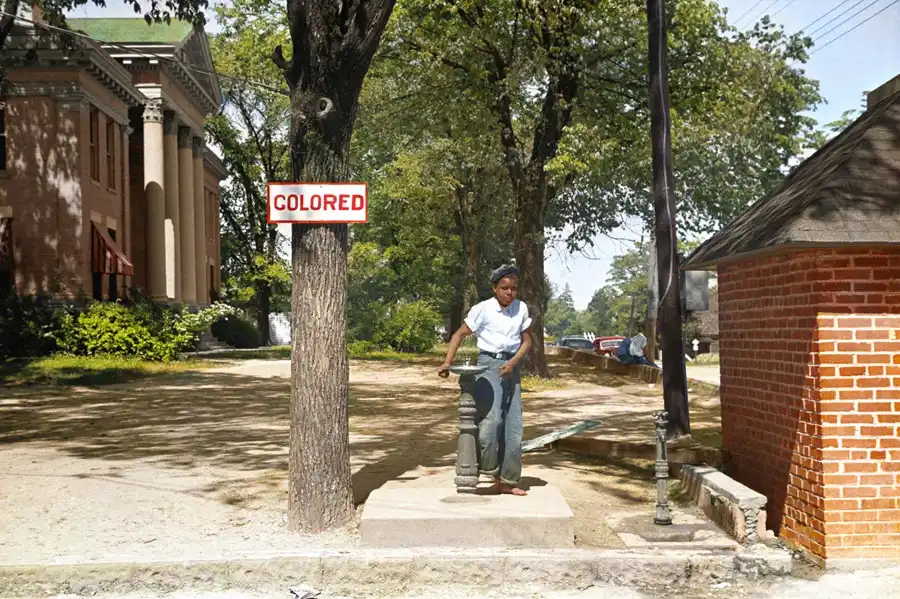 Drinking Fountain Labeled “Colored”, 1938
Drinking Fountain Labeled “Colored”, 1938
Civil rights encompass a broad range of fundamental rights and freedoms guaranteed to individuals by a government and protected by law. These rights aim to ensure equal treatment and protection under the law, regardless of personal characteristics.
Key aspects of civil rights include:
- Equal protection: The principle that all individuals should be treated equally under the law and should have the same rights and opportunities regardless of their background or characteristics.
- Freedom from discrimination: Protection from discriminatory practices based on race, ethnicity, gender, religion, disability, sexual orientation, or other traits in areas such as employment, education, housing, and public accommodations.
- Voting rights: The right to participate in the electoral process and to have one’s voice heard in choosing representatives and making decisions that affect one’s community and society as a whole.
- Education: Access to quality education free from discrimination or segregation based on race, ethnicity, or socioeconomic status and the right to equal educational opportunities for all.
- Employment: Protection from discrimination in the workplace based on characteristics like race, gender, age, disability, religion, or sexual orientation and the right to equal opportunities for employment, promotion, and fair treatment.
- Housing: The right to fair and equal access to housing opportunities without discrimination based on race, color, religion, national origin, sex, familial status, or disability.
The defining feature of civil rights law in the U.S. is that it seeks to preserve and protect these and other essential rights for all Americans, without exception.
Civil Rights Legal Foundations
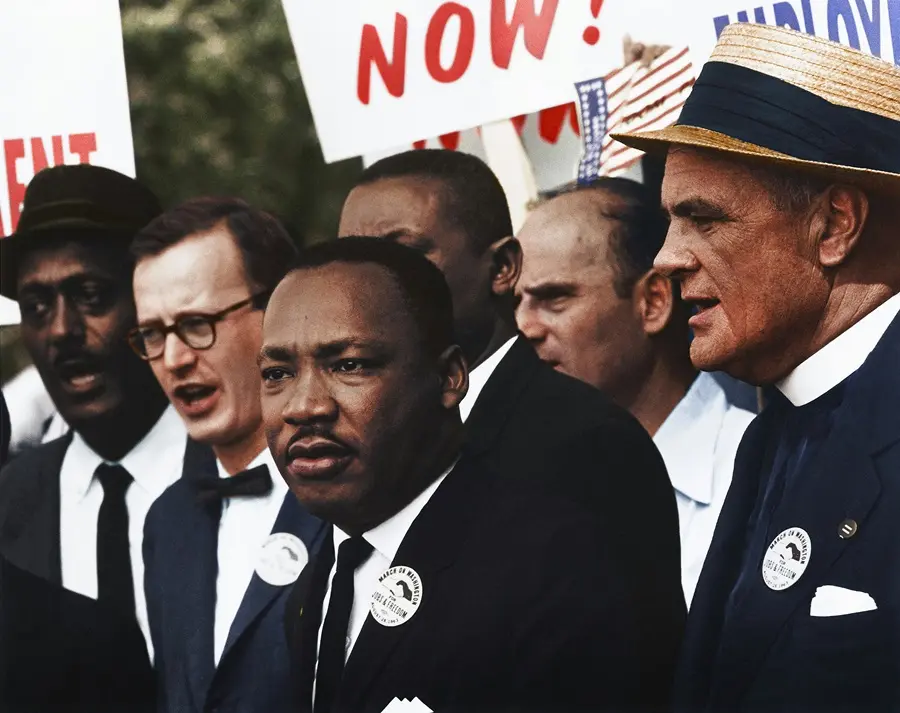 Dr. Martin Luther King, Jr. and Mathew Ahmann in a Crowd of Demonstrators at the March on Washington
Dr. Martin Luther King, Jr. and Mathew Ahmann in a Crowd of Demonstrators at the March on Washington
Civil rights are safeguarded by various legal foundations, including the following:
- Constitutional Amendments:
- 13th Amendment: Abolished slavery and involuntary servitude, laying the groundwork for ending systemic racial oppression.
- 14th Amendment: Guarantees equal protection under the law and prohibits states from denying any person within their jurisdiction the equal protection of the law.
- 15th Amendment: Prohibits the denial of the right to vote based on race, color, or previous condition of servitude, though it wasn’t fully enforced until the Voting Rights Act of 1965.
- 19th Amendment: Granted women the right to vote, advancing gender equality in the political sphere.
- 24th Amendment: Outlawed the poll tax, eliminating a critical barrier to voting for low-income individuals.
- 26th Amendment: Lowered the voting age to 18, ensuring that young adults have the right to participate in the electoral process.
- Landmark Supreme Court Decisions:
- Brown v. Board of Education (1954): Declared state laws establishing separate public schools for black and white students unconstitutional, overturning the “separate but equal” doctrine.
- Loving v. Virginia (1967): Struck down laws banning interracial marriage, affirming the fundamental right to marry regardless of race.
- Obergefell v. Hodges (2015): Legalized same-sex marriage nationwide, recognizing the right to marriage equality for LGBTQ+ individuals.
- Federal Legislation:
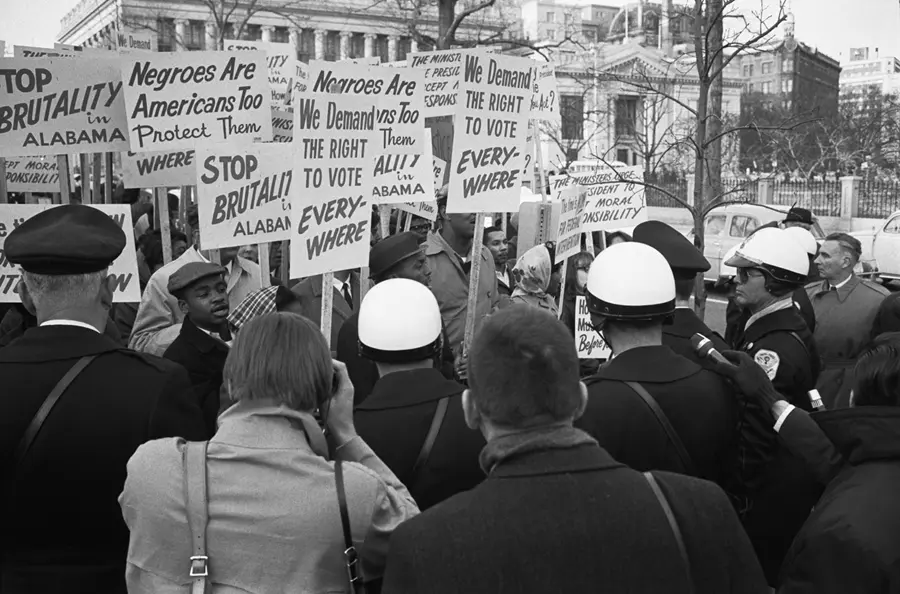 African American People on Demonstration. Alabama, 1964
African American People on Demonstration. Alabama, 1964
- Civil Rights Act of 1964: Prohibits discrimination based on race, color, religion, sex, or national origin in employment, education, and public accommodations.
- Voting Rights Act of 1965: Enacted to overcome barriers to voting for African Americans, particularly in the South, by eliminating discriminatory voting practices.
- Americans with disabilities act (ADA) of 1990: Prohibits discrimination against individuals with disabilities in employment, public accommodations, transportation, and telecommunications.
These legal foundations serve as the framework for protecting and advancing civil rights in the United States. They ensure that all people have equal opportunities and protections under the law.
Civil Rights in Mississippi: A Legacy of Struggle and Continued Strides
Mississippi’s civil rights story is characterized by both pain and progress. From its deeply entrenched history of racial segregation and voter suppression to the dauntless courage of countless activists, the state continues to grapple with this vital aspect of American history.
Historical Struggles
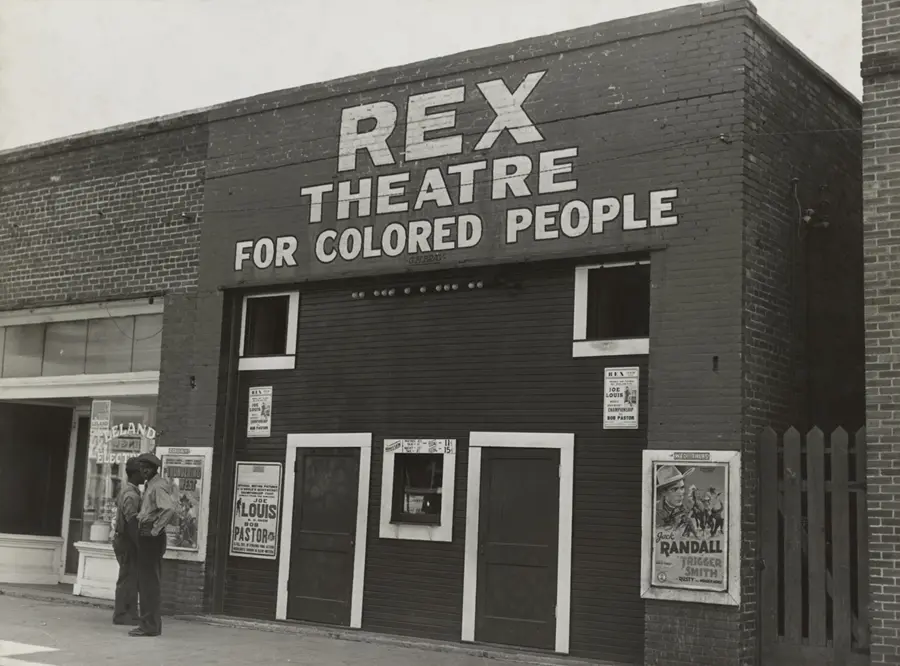 Segregated Movie Theater for African Americans in Leland, Mississippi
Segregated Movie Theater for African Americans in Leland, Mississippi
The civil rights movement was a pivotal struggle for social justice that unfolded during the 1950s and 1960s. Its primary goal was to secure equal rights for Black Americans.
Despite the abolition of slavery after the Civil War, discrimination against Black people persisted. Many faced the devastating effects of racism, particularly in the South. During this period, Black Americans and their allies mobilized and embarked on an unprecedented fight for equality that spanned two decades.
Jim Crow Laws
Following Reconstruction, Black people took on leadership roles and sought legislative changes for equality and voting rights. The 14th Amendment (1868) granted them equal protection under the law, and the 15th Amendment (1870) allowed Black American men to vote.
However, discriminatory Jim Crow laws were established in the South, segregating Black people from white people in public facilities, towns, and schools. Interracial marriage was illegal, and voter literacy tests disenfranchised many Black Americans.
World War II and Civil Rights
Before World War II, most Black people held low-wage jobs. In response to demands for equal employment rights, President Franklin D. Roosevelt issued Executive Order 8802 in 1941, opening national defense jobs to all Americans regardless of race.
Despite segregation and discrimination during their military service, Black men and women served heroically in World War II.

Suppression and Violence
Local governments employed restrictive and underhanded tactics like poll taxes, literacy tests, and intimidation aimed at disenfranchising Black voters. Brutal incidents like the murder of Emmett Till showcased the stark reality of violence faced by those fighting for equality.
A Beacon of Hope
Civil rights organizations like the NAACP and the Student Nonviolent Coordinating Committee (SNCC) led marches, boycotts, and voter registration drives, attracting national attention and paving the way for change.

Contact the Wrongful Death Attorneys at Brown Bass & Jeter Today
Submit for a Free Case Review!
Reach out and contact our Jackson, MS personal injury attorney today for a free case evaluation.
Landmark Civil Rights Cases in Mississippi
Mississippi has been a focal point in the history of the civil rights movement in the United States, with several landmark cases shaping the struggle for equality and justice. Here are some significant events.
Emmett Till Murder (1955)
The brutal murder of Emmett Till, a 14-year-old African American boy, shocked the nation and became a symbol of racial violence and injustice. Though not a legal case in the traditional sense, the trial of Till’s killers underscored Mississippi’s deep-seated racism and systemic injustice.
Freedom Rides (1961)
The Freedom Rides were a series of bus trips through the South, organized to challenge segregation on interstate buses and bus terminals. In Mississippi, Freedom Riders faced violent attacks from white supremacists and were arrested for violating segregation laws. Their bravery drew the eyes of the nation to the continuing battle for civil rights.
Fannie Lou Hamer and Voting Rights (1962)
Fannie Lou Hamer, one of the prominent civil rights activists, fought tirelessly for voting rights and political representation for African Americans in Mississippi.
While not associated with a specific legal case, her activism and advocacy efforts were instrumental in challenging discriminatory voting practices and bringing attention to the struggles faced by Black Mississippians.
 African-American Woman Voting in Washington D.C., 1964.
African-American Woman Voting in Washington D.C., 1964.
James Meredith and Ole Miss (Meredith v. Fair, 1962)
James Meredith’s legal crusade to integrate the University of Mississippi, or “Ole Miss,” marked a significant milestone in the Mississippi civil rights movement. His lawsuit against the university led to a federal court order forcing the university to desegregate, making Meredith the first African American student to enroll at the school.
Medgar Evers Murder (1963)
Medgar Evers, a prominent civil rights activist in Jackson, Mississippi, was assassinated in 1963. His murder galvanized the civil rights movement and highlighted the pervasive racism in the state. Evers’ tireless efforts as the NAACP’s field secretary left a lasting legacy, inspiring generations to continue the fight for racial equality and justice.
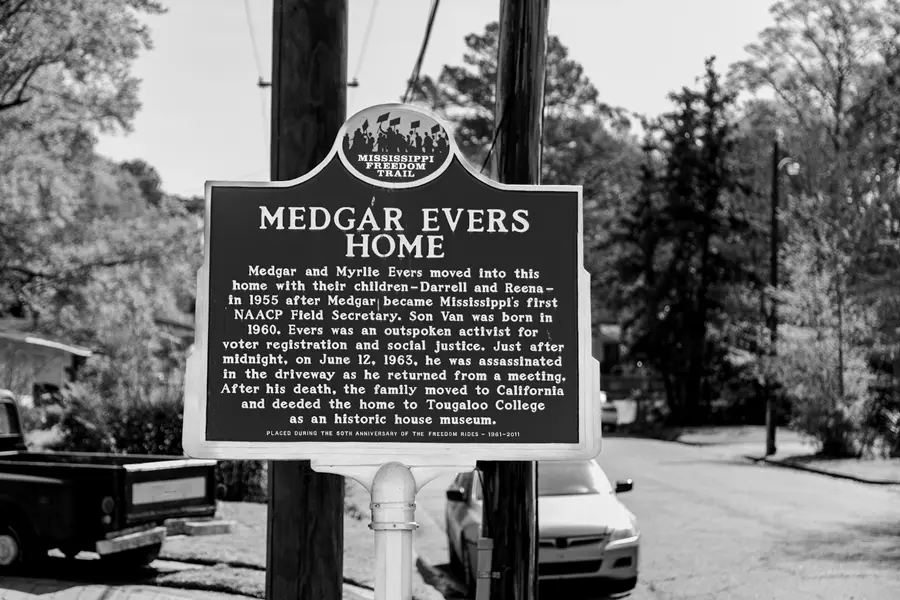 Medgar Evers Home Museum in Jackson, Mississippi
Medgar Evers Home Museum in Jackson, Mississippi
Freedom Summer (1964)
Civil rights activists launched a voter registration drive and educational campaign in Mississippi known as Freedom Summer. The campaign aimed to increase African American voter registration and highlight the legal, social, and political barriers to voting rights in the state.
Tragically, three activists — James Chaney, Andrew Goodman, and Michael Schwerner — were murdered by members of the Ku Klux Klan during the campaign.
Aaron Henry v. Clarksdale Municipal Separate School District (1965)
This case challenged the segregation of public schools in Clarksdale, Mississippi. Aaron Henry, a civil rights activist, and others argued that the school district’s segregation policies violated the Equal Protection Clause of the 14th Amendment. The ruling in their favor marked a significant victory in the fight against segregation in Mississippi’s education system.
United States v. Mississippi (1969)
In this notable case, the federal government sued Mississippi over its discriminatory voting practices, including literacy tests and poll taxes, which disproportionately disenfranchised African American voters.
The Supreme Court’s ruling that these practices violated the 15th Amendment led to reforms in voting laws and practices, increasing political participation and representation for African Americans in Mississippi.
Overall, these landmark cases played a vital role in dismantling segregation and advancing civil rights in Mississippi. By challenging discriminatory laws and practices, they paved the way for progress toward racial equality and justice for all American citizens.
Contemporary Mississippi Civil Rights Challenges
While much progress has been made, Mississippi continues to grapple with significant civil rights challenges.
Employment Discrimination
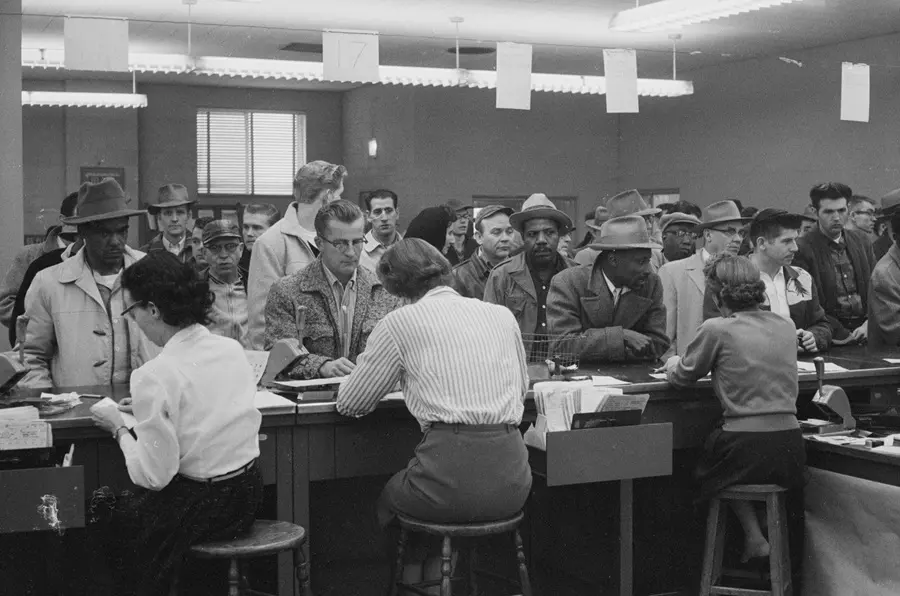 Unemployed Men in Detroit, Michigan. 1958
Unemployed Men in Detroit, Michigan. 1958
- Prohibited forms of discrimination: Federal and state laws, including Title VII of the Civil Rights Act of 1964, Age Discrimination in Employment Act, and Americans with Disabilities Act, prohibit discrimination based on race, color, religion, sex (including pregnancy, sexual orientation, and gender identity), national origin, age, and disability in various aspects of employment, including:
- Hiring and promotions
- Wages and benefits
- Training and development
- Termination
- Harassment
- Examples of common employment discrimination cases:
- Race discrimination: A Black employee is repeatedly denied promotion opportunities despite meeting or exceeding qualifications, while less qualified white colleagues advance.
- Gender discrimination: A female employee receives lower pay compared to male colleagues performing substantially similar work.
- Disability discrimination: An employer refuses to provide reasonable accommodations for an employee with a documented disability, resulting in adverse employment actions.
- Age discrimination: An older employee is laid off during company downsizing despite having comparable skills and experience to younger employees who remain employed.
Education Equity
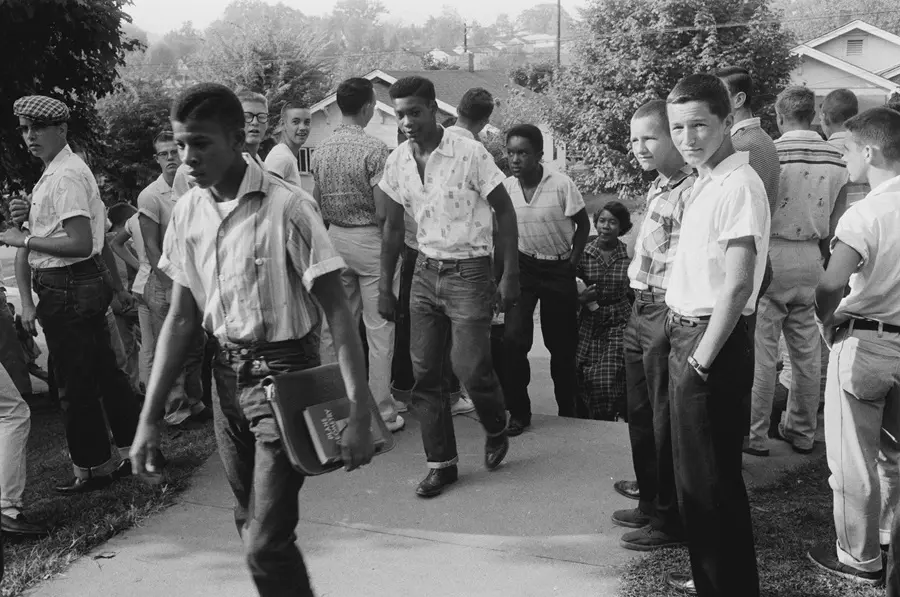 School Integration Conflicts in Clinton, TN
School Integration Conflicts in Clinton, TN
- Legal framework: Title VI of the Civil Rights Act and Title IX of the Education Amendments Act mandate equal educational opportunities free from discrimination; despite legal protections, disparities persist in educational access, resources, and outcomes, particularly for marginalized students.
- Common cases: Litigation focuses on issues like racial disparities in school discipline, unequal access to resources for students with disabilities, and discrimination against LGBTQ+ students.
Housing Rights
- Fair Housing Act: Prohibits discrimination based on race, color, religion, sex, familial status, national origin, and disability for rental, purchase, lending, and other housing-related activities; unfortunately, discriminatory practices persist, including redlining, steering, and unjust treatment of protected groups.
- Emerging Issues in Fair Housing Law:
- Discriminatory lending practices: Financial institutions may engage in predatory lending practices, targeting minority communities with subprime loans or higher interest rates.
- Housing accessibility: Individuals with disabilities continue to face barriers in accessing suitable housing due to inadequate accommodations and discriminatory policies.
Criminal Justice Reform
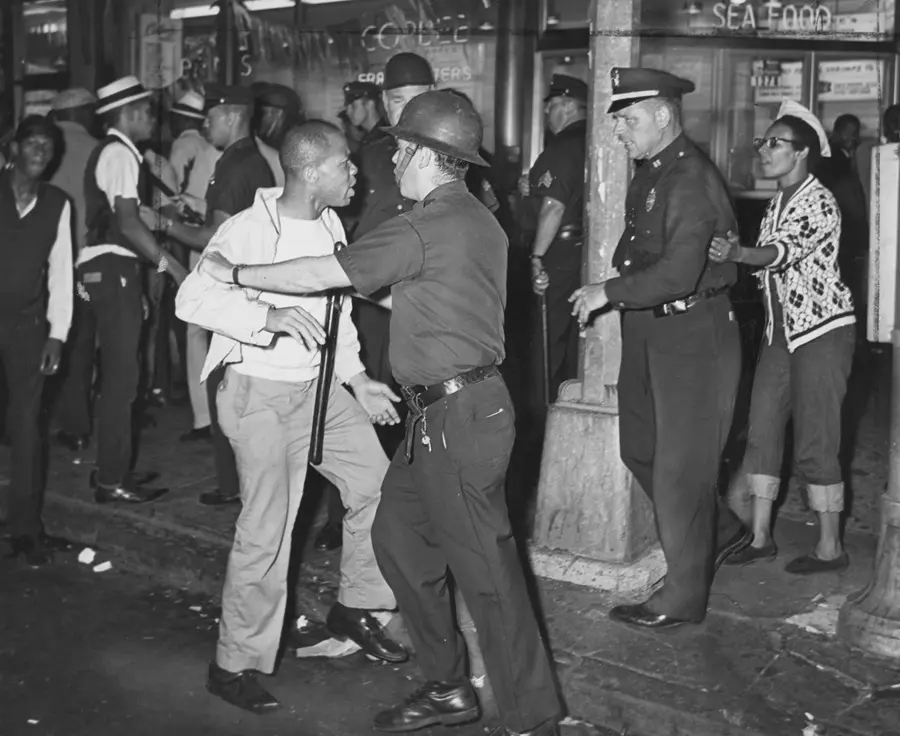 Confrontation between African Americans and police. Brooklyn, 1964
Confrontation between African Americans and police. Brooklyn, 1964
Disparities in the criminal justice system perpetuate systemic injustices, including racial profiling, harsh sentencing practices, and inadequate legal representation. Attorneys play a pivotal role in advocating for criminal justice reform and holding law enforcement agencies accountable for civil rights violations.
LGBTQ+ Rights
Mississippi still lacks comprehensive protections for LGBTQ+ individuals, with limited anti-discrimination laws and restrictions on same-sex marriage. Consequently, LGBTQ+ Americans face discrimination in employment, housing, and public accommodations.
Access to Healthcare
Mississippi struggles with disparities in healthcare access, which particularly affect marginalized communities such as low-income individuals, people of color, and rural residents. Limited access to affordable healthcare services and resources contributes to poor health outcomes and furthers existing inequalities.
Celebrating Progress and Continuing the Fight
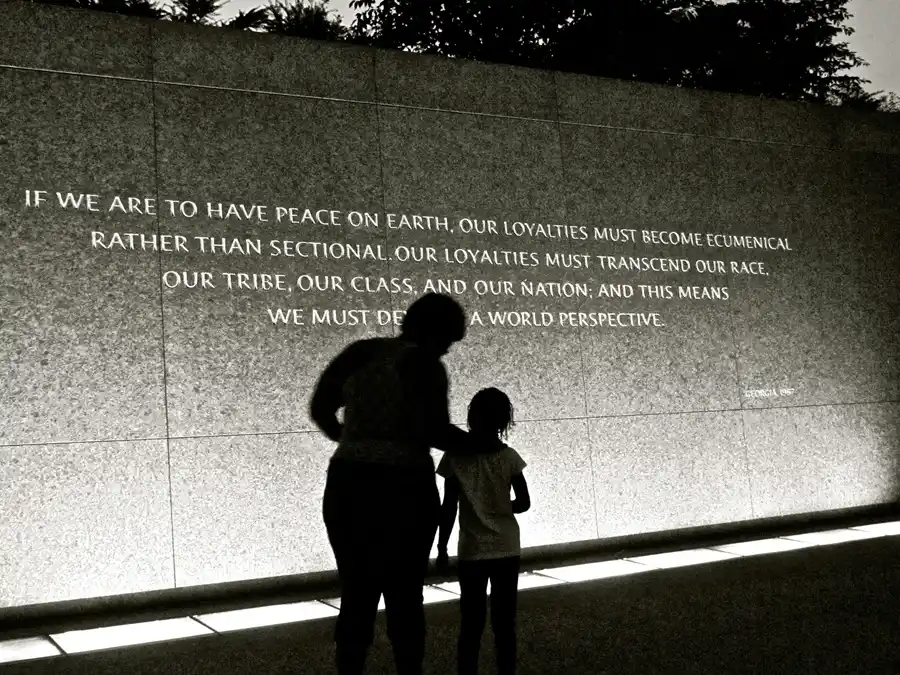 Martin Luther King Jr. Memorial in Washington DC
Martin Luther King Jr. Memorial in Washington DC
From Medgar Evers’s unwavering activism to countless community leaders and legal pioneers, Mississippi’s journey to statewide civil rights is rich with stories of courage and resilience. Yet much work remains. Black History Month reminds us to honor the past but also to actively engage in the ongoing fight for justice.
At Brown, Bass & Jeter, we stand ready to support those who face discrimination and injustice. If you or someone you know has experienced discrimination, harassment, or unfair treatment, we encourage you to contact us and seek support. Together, we can work toward a more just and equitable society for all.

